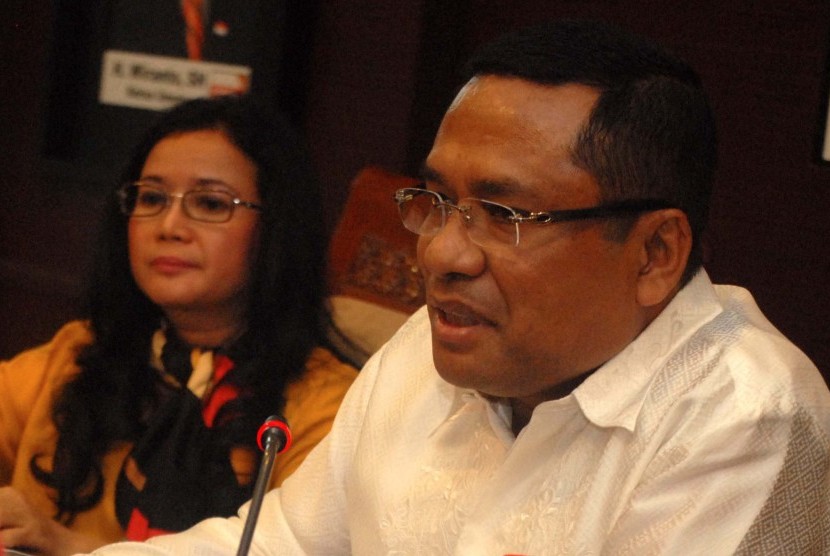REPUBLIKA.CO.ID, BEIJING -- Industry Minister Saleh Husin said he was optimistic that Indonesian economy will perform well this year despite Chinese slowdown over the past several years.
"I remain optimistic that foreign investment including from China would continue to flow into Indonesia," Saleh said here on Monday night.
Based on the the country's mid term development plan (2015-2019) the country's economic growth target is set at 6-7 percent a year.
In order to meet the target, a total investment of Rp26,557.9 trillion would be needed in five years until 2019, he said, adding the fund would be raised domestically and externally.
He said China is expected to take part in funding the investment especially for infrastructure , integrated industrial estates and other projects.
Indonesia and China have agreed to cooperate in the development of the integrated industrial estate (KIT) with agreement signed on Oct 2. in 2013.
Saleh Husin said Indonesia has asked Chinese investors to be serious in meeting its commitment to build the 13 units of KIT.
The KITs include Kuala Tanjung (North Sumatra), Sei Mangkei (North Sumatra ), Tanggamus (Lampung), Batulicin (South Kalimantan), Ketapang (West Kalimantan), Mandor (West Kalimantan), Bitung (North Sulawesi), Palu (Central Sulawesi), Morowali (Central Sulawesi), Konawe (Southeast Sulawesi), Bantaeng (South Sulawesi, Buli (East Halmahera, North Maluku), and Teluk Bintuni (West Papua).
Development of the 13 KIT units all outside Java, will cost around Rp55.4 trillion.
The fund would be needed to build supporting infrastructure outside KITs such as ports and additional investment of Rp1.1 trillion for facilities inside KITs.
Saleh Husin said the government is committed to simplify regulations to attract investors and the policy has contributed to stronger inflows of foreign investment including from China into the country.
He said despite the slowdown , China will still needs supply of primary commodities like minerals from Indonesia.
China recorded an economic growth of 7.4 percent in 2014 , the lowest since 1999 on property slump and higher debt repayment burden.
Chinese Prime Minister Li Keqiang told world's leaders at a World Economic Forum in Davos, Switzerland that despite the strong pressure in 2015, China had no systemic financial risk.


